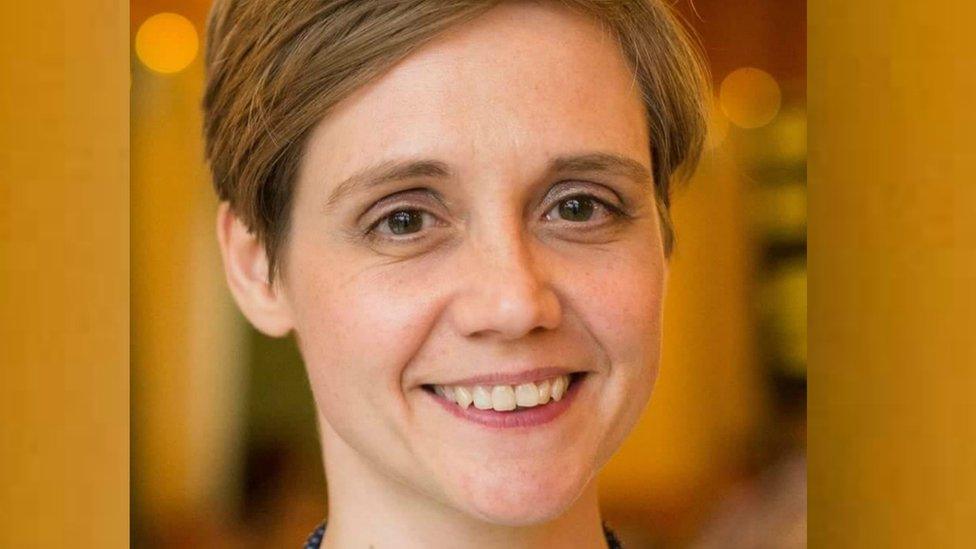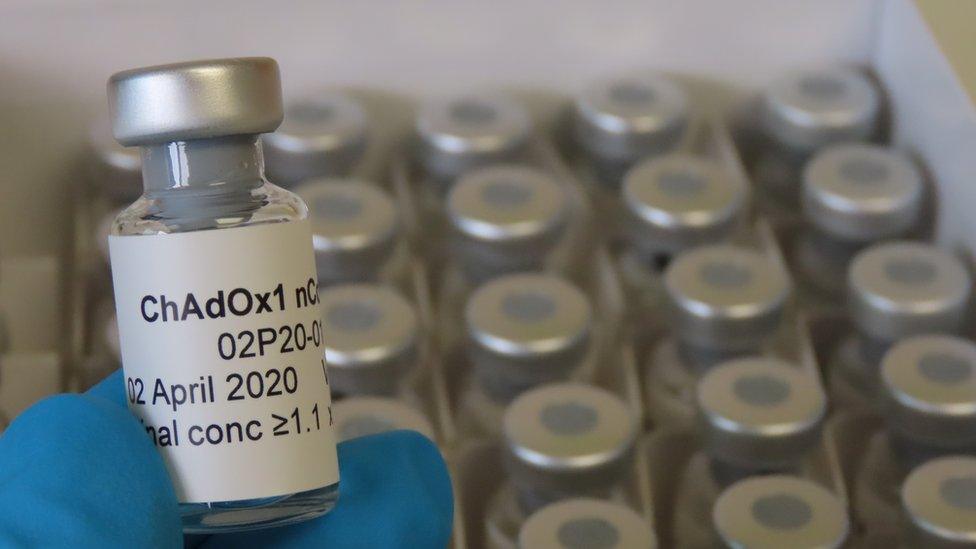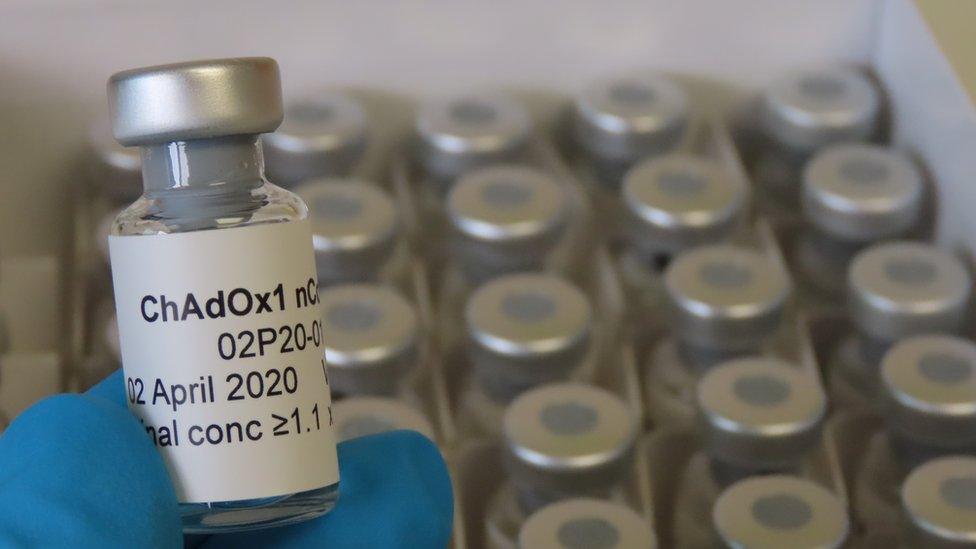Coronavirus: Woman's 'privilege' to be part of vaccine trial
- Published

Lydia Guthrie is one of 500 people taking part in the Oxford University project to test a potential vaccine
A participant in the human trials of a potential vaccine for Covid-19 says "it feels like a privilege" to be involved.
Lydia Guthrie is one of 500 people expected to take part in the Oxford University project.
Researchers said the trial would give "valuable information" on a vaccine's safety and ability to generate an immune response against Covid-19.
Ms Guthrie told the BBC there were "small risks" to her health but she felt the trial was "well managed".
The mother of two said there was a "slight risk" that if she contracted Covid-19 she "might get it slightly more seriously" due to being vaccinated.
Health Secretary Matt Hancock said the government was "throwing everything" at developing a vaccine, with the hope that one could be available for front-line workers and the most vulnerable people before the end of the year.
He said two leading vaccine developments at UK universities - Imperial College London and the University of Oxford - would receive a total of £42.5m to support their trials.

Ministers hope a vaccine could be available for front-line workers and the most vulnerable people before the end of 2020
Ms Guthrie said she applied to be part of the Oxford trial after spotting an advert on Twitter.
"I just had a really strong sense that if I could, I would like to to play a small part as an individual in the search for a vaccine," she said.
She added she "would have to be crazy not to have some worries", but said doctors had been clear and thorough about the processes and risks involved.
Professor Adrian Hill, director of the Jenner Institute at the University of Oxford, said the trial team had "exceptional experience of a rapid vaccine response", such as to the Ebola outbreak in West Africa in 2014.
"This is an even greater challenge," he said.
"Vaccines are being designed from scratch and progressed at an unprecedented rate. The upcoming trial will be critical for assessing the feasibility of vaccination against Covid-19 and could lead to early deployment."
- Published21 April 2020
